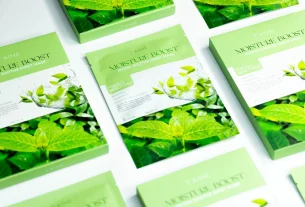Estimated Reading Time: 10 minutes
Estimated Reading Time: 9 minutes
LLfe in 2025, isn’t it? Fast-paced, demanding, and often, just a tad overwhelming.
If you’re anything like me, you’ve probably found yourself wrestling with stress and anxiety from time to time.
I’ve been there, juggling work, family, and the constant pressure to do it all, and trust me, it’s exhausting.
But over the years, I’ve discovered a whole host of natural remedies for stress and anxiety that have become my go-to tools for navigating the rough waters of modern life.
This isn’t just about surviving; it’s about thriving.
The beauty of focusing on natural remedies lies in their gentle approach.
Unlike some pharmaceutical options, they often come with fewer side effects and can be easily integrated into your daily routine.
It’s about reclaiming control over your well-being in a way that feels sustainable and empowering.
We’ll explore a variety of avenues, from simple lifestyle tweaks to more targeted interventions.
Before diving into solutions, let’s briefly touch on why stress and anxiety creep into our lives in the first place.
It’s a complex interplay of factors, including genetics, personality, life experiences, and of course, the relentless demands of our environment.
For example, that constant ping of your phone or the endless stream of emails can trigger the release of cortisol, the primary stress hormone.
Over time, this can contribute to chronic anxiety, leaving you feeling wound up and on edge, and leading you to seek out natural remedies.
It’s like trying to run a marathon when you’re already exhausted.
The good news? You’re not powerless. Understanding your triggers is the first step. Are you a perfectionist? Do you tend to catastrophize?
Recognizing these patterns allows you to develop strategies to counteract them.
And that’s where these natural remedies for stress and anxiety become indispensable.
Consider it a toolbox, each tool designed to address a specific aspect of your mental well-being.
Think of your lifestyle as the foundation upon which all other natural remedies are built.
Neglect this foundation, and your efforts may crumble. A healthy diet, regular exercise, and sufficient sleep are non-negotiable.
Imagine trying to build a house on a swamp – it simply won’t stand. The same principle applies to your mental health.
For example, consider the impact of sleep. Chronic sleep deprivation can significantly worsen anxiety symptoms.
Aim for 7-9 hours of quality sleep each night.
Create a relaxing bedtime routine – a warm bath, reading a book (not on a screen!), or practicing some gentle yoga.
This isn’t rocket science; it’s about establishing healthy habits and setting boundaries.
One of my personal favourites is a cup of chamomile tea before bed. It’s simple, effective, and feels like a warm hug for the soul.
Diet also plays a crucial role. Focus on whole, unprocessed foods.
Reduce your intake of sugar, caffeine, and alcohol, as they can exacerbate anxiety symptoms.
Nourishing your body with nutrient-rich foods will strengthen your resilience to stress.
Think of it this way: what you put in your body significantly impacts your mental state.
Nature provides a plethora of herbal natural remedies for stress and anxiety.
These aren’t magical cures, but they can offer gentle support and help to regulate your nervous system.
Before incorporating any herbs, consulting with a healthcare professional is always recommended, especially if you’re taking other medications. Here are a few of my personal favorites:
As an example, I once struggled with extreme travel anxiety. Knowing that the flight I was booked on was often delayed was almost too much.
One of my friends suggested I use lavender essential oil to help manage my anxiety.
I tried it and found that smelling a lavender oil stick helped me overcome those feelings. It became my go-to remedy.
In our hyper-connected world, it’s easy to get lost in the constant noise.
Mindfulness and meditation provide a powerful antidote, enabling you to cultivate inner peace and resilience against stress.
It’s not about emptying your mind; it’s about training your mind to be present.
Start with just a few minutes each day. Find a quiet space, close your eyes, and focus on your breath.
When your mind wanders – and it will – gently redirect your attention back to your breath.
There are countless guided meditation apps and resources available, making it easier than ever to get started.
Even 5-10 minutes a day can make a significant difference.
Additionally, incorporating mindfulness into your daily activities can be incredibly beneficial.
Try eating your meals mindfully, savoring each bite and noticing the flavors and textures.
Take a mindful walk, paying attention to the sensations in your feet and the sights and sounds around you.
This practice can help you become more aware of your thoughts and feelings, reducing their power over you.
Beyond lifestyle changes and herbal remedies, several other tools can help you manage stress and anxiety.
Exercise is a well-known stress buster. Regular physical activity releases endorphins, which have mood-boosting effects.
It doesn’t have to be a grueling workout; even a brisk walk or a bike ride can make a difference.
Deep breathing exercises can quickly calm your nervous system.
Practice deep, slow breaths, inhaling through your nose and exhaling slowly through your mouth. This simple technique can be used anywhere, anytime.
Spending time in nature has been shown to reduce stress hormones.
Go for a walk in the woods, sit by a lake, or simply spend time in your garden. The calming effects of nature are truly remarkable.
Here’s a little tip: Practice the 4-7-8 breathing technique. Inhale for 4 seconds, hold your breath for 7 seconds, and exhale slowly for 8 seconds.
This simple exercise, repeated a few times, can quickly soothe your nerves. It works wonders when you’re feeling overwhelmed.
While natural remedies for stress and anxiety can be incredibly helpful, it’s crucial to remember that they’re not a replacement for professional support.
If your anxiety is severe or persistent, don’t hesitate to seek help from a therapist or counselor.
They can provide guidance, support, and evidence-based therapies, such as cognitive behavioral therapy (CBT), to help you manage your anxiety.
There’s no shame in seeking help. Mental health is just as important as physical health.
Finding the right support can make a huge difference in your journey towards well-being.
Consider it another powerful tool in your arsenal of solutions. I can personally vouch for the benefits of therapy; it changed my life.
A good therapist can provide tools, insights and support.
The most effective approach to managing stress and anxiety often involves a combination of strategies.
Lifestyle adjustments, herbal remedies, mindfulness practices, and professional support can work synergistically to create a comprehensive plan for your well-being.
It’s rarely a one-size-fits-all solution.
For example, you might start by incorporating regular exercise and a healthy diet, then experiment with herbal remedies like lavender or chamomile.
Combine these practices with mindfulness meditation, and consider seeking therapy to address any underlying issues.
The key is to find what works best for you and to be consistent with your efforts. It’s a journey, not a destination.
Managing stress and anxiety is an ongoing journey, not a destination.
The pursuit of calm is a worthy endeavor, and incorporating natural remedies for stress and anxiety into your daily life can be incredibly empowering.
From the simple act of taking a deep breath to the consistent practice of mindfulness, you have the power to reshape your response to life’s challenges.
Remember, be patient with yourself. There will be good days and bad days.
The important thing is to keep moving forward, learning from your experiences, and finding what works best for you.
Don’t be afraid to experiment with different approaches, and most importantly, be kind to yourself.
You deserve to live a life filled with peace and tranquility. Embrace the journey, and you’ll discover a richer, more fulfilling life.
By adopting these natural remedies you will find yourself in a calmer more relaxed state.
And one more thing: if a remedy doesn’t work for you, don’t give up! There are so many other options.
The perfect solution for you is out there waiting to be discovered.
Frequently Asked Questions
What are the common misconceptions about using natural remedies for anxiety?
A common misconception is that natural remedies are always mild and ineffective. While they may be gentle, many natural remedies, such as specific herbs and mindfulness techniques, can have a significant impact on anxiety symptoms. Another misunderstanding is that natural remedies are a quick fix. It’s important to remember that they often work best when integrated into a holistic lifestyle that includes healthy eating, exercise, and stress management practices. Lastly, many believe that since they are natural, they are automatically safe for everyone, when they can interact with other medications and have side effects. Always consult with a healthcare professional before starting any new treatment.
How do natural remedies compare to conventional medication for anxiety?
Natural remedies often differ from conventional medications in their approach and potential side effects. Conventional medications, like SSRIs, can provide rapid relief by directly affecting neurotransmitters in the brain. However, they can also come with side effects, such as weight gain or sexual dysfunction. Natural remedies, on the other hand, work more subtly, often by supporting the body’s natural stress-response systems. They may take longer to produce noticeable results but typically have fewer side effects. The best option depends on the severity of the anxiety and individual preferences. Consulting with a healthcare provider is essential to determine the most appropriate treatment plan.
Can natural remedies be used in conjunction with conventional treatments for anxiety?
In many cases, yes. Combining natural remedies with conventional treatments, such as medication or therapy, can be a very effective approach. For example, a person taking an antidepressant might also incorporate mindfulness practices and herbal remedies to enhance their overall well-being and reduce side effects. However, it’s crucial to consult with a healthcare professional before combining any treatments. They can help you monitor for potential interactions and ensure that your treatment plan is safe and tailored to your individual needs. Some herbs may affect how medications work and could prove dangerous. It is important to speak to a doctor before combining different forms of treatment.
Are there any specific dietary changes that can help with anxiety?
Absolutely. Diet plays a crucial role in managing anxiety. Limiting sugar, caffeine, and alcohol is often a good starting point, as these substances can exacerbate anxiety symptoms. Focus on incorporating nutrient-rich foods, such as fruits, vegetables, lean proteins, and whole grains. Certain foods also have specific calming properties, such as foods rich in magnesium (leafy greens, nuts), omega-3 fatty acids (fatty fish, flaxseeds), and probiotics (yogurt, kefir). It is recommended that a doctor is consulted about changes to a person’s diet.
What is the role of exercise in managing anxiety, and what types of exercise are most beneficial?
Exercise is a powerful tool for managing anxiety, as it releases endorphins, the body’s natural mood boosters. Regular physical activity can also reduce stress hormones like cortisol and improve sleep quality, all of which are beneficial for managing anxiety. For those suffering from anxiety, moderate-intensity exercise, such as brisk walking, jogging, swimming, or cycling, is usually very effective. Engaging in exercise regularly is important, aim for at least 30 minutes of moderate-intensity exercise most days of the week. Consistency is the key to seeing the benefits of exercise on your anxiety levels.




